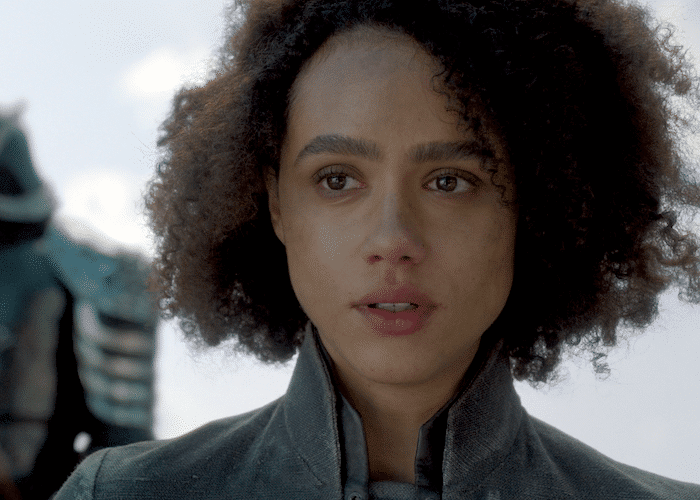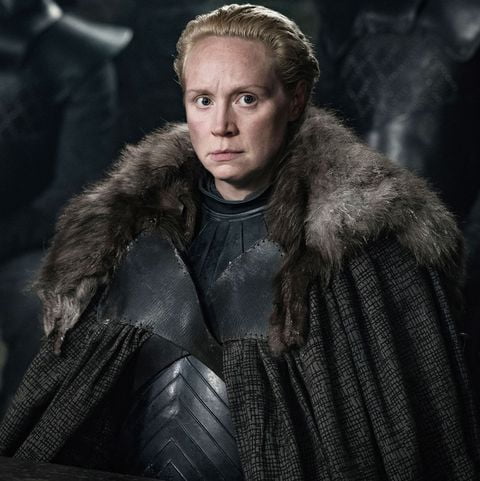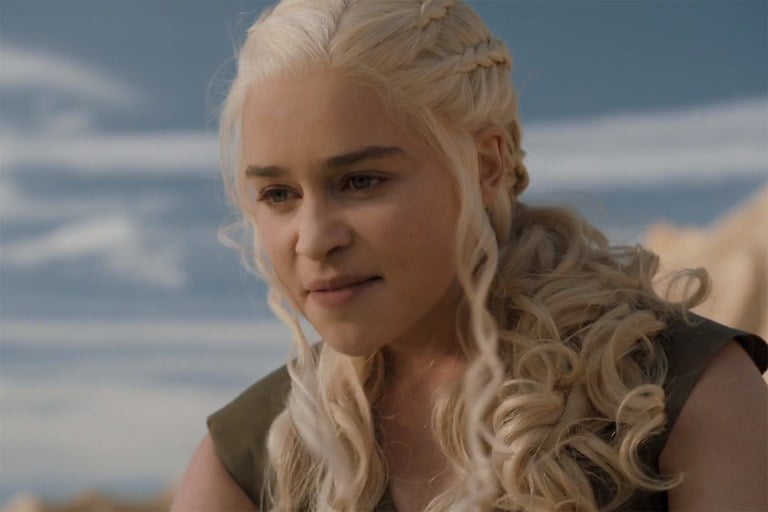Posted by Simple Rajrah
Why could Game of Thrones writers not let the main women characters end with dignity? Mainstream TV series have hardly done justice to their women characters – from shying away in visualising lead roles as women to hopelessly failing in capturing the complexities and nuances of lead women roles. If any, they have failed at creating wholesome women characters, ones that we could relate to not just aspirationally with their heroism but with their daily complexities.
But despite its problematic comprehension and display of gender and sexuality, and reasonable critique that has been mounted before, Game of Thrones had come a step closer to providing the world with women in lead roles, marching as leaders, having an unfaltering moral compass and also making mistakes on a journey to the fulfilment of their own desires. It came tragically close to formulating a woman leader who rises from the ashes and builds a crushing army one by one, an unloving queen whose fathers disciplinary tactics and mothers death are constitutive of her evil disposition and a young girl who survives torture, rape and disregard, to outsmart the wicked.
Their resolute compassion that wouldn’t falter even amidst chaos, their evil genius that defied the most immaculate military strategies, their colossal loyalty that stood in the face of death, all crumble.
Yet, the last season so far has been less than spectacular in adhering to that conception we thought it was creating. Women never outlive war, it seems. Their resolute compassion that wouldn’t falter even amidst chaos, their evil genius that defied the most immaculate military strategies, their colossal loyalty that stood in the face of death, all crumble. Game of Thrones nurtured many women characters since the beginning of the series, each season layered them with more nuances, with some seasons dedicated specifically to their rise and fall and yet, in the end, it slaughters them with one cold episode.
Missandei

Consider Missandei who dies in the episode before, while the only woman of colour who had in fact survived the entire series although her character has a rather late entry, she dies a shadily scripted end. Without revealing whether or not she puts up a fight, the viewers are served with her abduction – she may or may not have fought for the queen bravely, we aren’t told. All that is served is that her white queen now has to plot a quick war in order to rescue her, although there are no dialogues that she is wanted alive at all costs.
Nevertheless, to our shock, her quiet abduction translates quickly into a brutal and humiliating death, with her last words being ‘Dracarys’, a sheer ode to loyalty and penultimate positions that brown characters have received in the show. A brown woman is slaughtered publicly to send a message of shock and horror, her carefully calibrated loyalty must justify her meaningless death for a white war. How new!
Brienne of Tarth

If it wasn’t for Missandei, consider Brienne who received an honorary knighthood in a rather pleasant moment amongst those alongside whom she fought bravely against the Night King. First of all, why does she have to face that tormenting milk story from Tormund? I’m sure the writers could’ve thought better than putting her or for that matter any of us through it. Nonetheless, she was a recently ordained knight whose character’s strength and ‘I won’t fuck you even if this is the last day on earth’ attitude is replaced suddenly with a one night stand that apparently wouldn’t even finish before Jamie realises that he needs to return to the one true woman he desires.
A side love chemistry that was developed between the most unlikely characters, one having pledged to Knighthood and shown without any sexual desires and the other both evil and warm-hearted at once comes to a climax and dips vertically into the character death of obviously the woman. A woman that didn’t shed a tear when almost everyone on her side is facing death, who doesn’t quiver much when she learns the death of her loyal Catelyn Stark is reduced to tears and wailing when her one night lover deserts her to meet the woman he desires. Sure, love is convoluted and intense and can breakdown almost everyone, and everyone, including women, have a right to this falling and breaking in love. Yet, the writers could’ve presented this with some nuance to ensure it looks plausible than falling in the standard trope of women’s candour being broken by deserting lovers.
Queen Cersei

One would imagine that this sudden breakdown of character integrity is only reserved for side women characters, ones we knew would be considered dispensable in every consequent episode. Who would’ve thought that the evil genius Cersei, known for her brutality and pragmatism will fall. Who would’ve been able to kill the flamboyantly cruel woman, who doesn’t shiver when her lover kills pushes a young boy from atop a building, who doesn’t break after ages of humiliation and torment at the hands of the people whom she propelled to power and returns with more colossal and desperate power than before. Well, the writers did.
Game of Thrones seemed to not care in even making its two lead women speak to each other, there is no direct confrontation between Cersei and Daenerys.
Her royal pragmatism is apparently forgotten at the end, even when she sees the city burning and the dragon flying towards her, she decides only too late to leave. The woman who was methodical and clever enough to not follow up on her promise of fighting against the dead is seen to watch a flying dragon unremorseful and unafraid. And even when that wasn’t enough, Game of Thrones which received immense applause on its powerfully delivered and crisply formulated dialogues seemed to not care in even making its two lead women speak to each other, there is no direct confrontation between Cersei and Daenerys.
On two extreme ends, both characters suffer from powerless and floating dialogues and never speak to each other. What a scene it would’ve been – Cersei claiming her right to the throne and reminding Daenerys of the last time a Targaryen held the iron throne and the massacre of blind power thereafter. And Daenerys reminding Cersei that only the breaker of chains can be the rightful heir as opposed to a tyrant. Power meets power. Power speaks to power. Yet, obviously not. The creators instead made Cersei panic at the sheer end, remembering her child only at the last where even she knows nothing could’ve been done.
The woman who sends for her lover to be murdered, fears for her own death and wails after seeing him bleeding. A daunting realist, a wicked queen and a vile killer dies quickly while running away, crushed by her own castle. And I definitely do not intend to say that these extremities cannot exist in the characters, they are thick and layered throughout where each new scene reveals something unprecedented about their misdemeanour. Yet, what we did deserve was a smooth transition. The strength of a powerful series with multitude of characters lies in the nuances that need to be displayed, they cannot be bent from one extreme to another casually and without any explanation as to what caused their reform or surrender.
Arya Stark

A girl has no name. But remember Arya Stark – the woman who doesn’t shudder at leaving her companion to die, who undergoes an immensely dangerous and harsh training to become trained into one of the faceless because she has a list of people she intends to kill, then why does she suddenly forget her agenda? So close to Cersei, she instantly abandons what in previous seasons was shown to be her sole purpose of living because an old man finally speaks politely to her and asks her to save her life. Why create such strong and resolute women characters if they all have to be demolished at the end – either because of their male companions or at their polite request. The woman who killed the Night King becomes the woman who immediately shudders from her own death and then gets shocked at the madness of the new queen.
Daenerys Targaryen

And now coming to the mad queen herself. Why? Why? Why? It was absolute shock and mindlessness that was served to the viewers who have thoroughly believed in the complexities of the characters they were watching, who have had faith that there must surely be a reason why any character would act out, which would later be explained using heart wrenchingly determinate dialogues that would transform the viewer’s gut into forgiveness.
Ever since the beginning, there were plenty of reminders of the madness of the Targaryen king which was served as a metaphor of the corruption of absolute unchecked power. Warnings were issued of never letting the dragons breathe again for their wrath was uncontrollable and their beholder one, who would forget the meaning of life and only remember rule – whether it is of the living or not. The series, even until the end, gave number of warnings through Lord Varys of shifting loyalties when the incorrect person, even a woman, rules. Yet, who would’ve thought that the woman who is shown as the breaker of chains, the crusader of justice would overcome by unprecedented rage and not just against those in power or tyrants, but against innocent women and children.
It was literally annoying to watch the trope of the ‘madwoman in rage’ being used again to lend an anti-climatic end to a beautiful series. And without any explanation whatsoever. If Daenerys had to turn into this enraged brutal and merciless tyrant, she could’ve become so when she had plenty of chances – when her husband was killed, when her child was murdered through black magic, when she was abused by her brother, when her dragon children were killed. But no, she loses her sanity when she actually is close to becoming the queen of the iron throne. Return the archetype of mad, uncalculated women whose rage is uncontrollable. She understands the bells of surrender are ringing and yet instead of plunging right at the Red Keep using dragon fire, she burns the entire city with no mercy for any inhabitant, innocent or otherwise, and reclaims her rightful tag as ‘queen of the ashes’. Why was it so essential to ensure the audience understands merciless women whose brutality will now lead the way for a noble king?
In the penultimate episode, viewers had many expectations – of horror, of mistrust, of shock, of sadness, of grief but hardly any of us expected the madness the writers unleashed. Unless Game of Thrones magically redeems itself in the last episode, the women deserved better. The characters deserved better. And we deserved better.
Also read: Women In The Game Of Thrones – How Far Have They Come?
Simple Rajrah is currently pursuing an M.Phil in Political Theory from the University of Oxford. She previously holds a postgraduate degree in Politics and International relations from Jawaharlal Nehru University, Delhi. She can be contacted at simplerajrah@gmail.com.
About the author(s)
Guest Writers are writers who occasionally write on FII.





I think this review is slightly off-base. Here are a few of my thoughts:
1. Brianne of Tarth having a romantic interest does not negate the fierce warrior that she is. This mentality is itself pretty unfeminist.
2. You, quite conveniently, do not mention Sansa Stark. Sansa Stark is quite possibly one of the greatest female characters – great complexity and development
3. Daenerys isn’t tyrannical all of a sudden. There has been a gradual descent into power-hungriness beginning (in my view) when she decided to burn all of the Tarly soldiers. Power is a corrupting force, regardless of whether you are a man or woman.
4. By only focusing on evil/tyrannical female characters you are forgetting that there have been plenty of evil male characters too, and they have been punished for it
5. Cersei’s death is a truly appalling writing choice, but one can look at it as a humanising end – so there’s multiple angles within a feminist critique.
6. You have taken your personal disappointments with the show and added a few feminist terms and called it a “feminist critique” though it is far from it. A more radical critique would have looked at gendered struggles in war (men expected to fight, women raped) and how it is upheld/subverted within the show.
Just my thoughts!
@richa – Imagine this scenario –
You hear about a chain snatching crime in Delhi whose victim is a woman and someone goes on to say that women are not safe in Delhi, and then you end up saying , well thats not the case , “even men aren’t.”
This article is more about how lead women characters have been crushed eventually by a bad write up. Thats it. We do not need to justify lead men roles here. It has happened with a lot of men in the series too, hence it makes it even? No.
If a single white person in the U.S. faces discrimination of any kind(which is obviously wrong) you cant come up with “see it happens with them too” whenever you read an article about how black people are discriminated.
Power is indeed a corrupt force but not all rulers get mad with it. And those mighty selfless ones that do not get mad and do justice, how many of them have you heard to be women btw?
Until the last episode, Dany would have been one such female ruler but no she had to show her true Targaryen self which only makes me wonder how is Jon Snow immune to all this?!
P.s – Ofcourse someone having a love interest doesn’t negate the fierce feminist they are. Showing emotion is not a weakness. Maybe the writer wants to point out the extremities in the characters, in which case a better argument could have been made on Brianne.
@Richard
You know truly this show has really gone downhill since the creators had no books to go on. I believe that began from Season 6 onwards. I wonder why George R.R. approved the writers’ choices, if indeed he did.
I don’t understand the last point on Brienne that you made, but I understand and am in agreement with the rest.
Idk what made me argue that day even tho I share all the frustrations of the writer. I was watching a Youtube video on the evolution of Dany’s character and her tyranny is so inauthentic to the character they had built up. Cersei deserved a better death, I cannot stomach that they tried to humanise from the typical ‘motherhood’ angle.
Wish the article had touched on Olenna, Margery and Ellaria.
@Richa – I was agreeing with you on the Brianne point that showing love and emotions is not a weakness.
Since Brianne kinda begs Jamie to not leave her and go to Cersei, maybe the writer wanted to point out the extremities in her character meaning at one point she comes out as almost asexual but gradually she develops these feelings for Jamie.
Remember the dialogue exchange between Cersei and littlefinger about “knowledge is Power” and “power is power”, that was the level of the show. Which was missed dearly this season.
I’m sorry, but I do not think that this article makes much sense. At least, the core of its content does not. The show went out of it’s way to put women (and only women) in places of power. To show us that they’re the true badasses. Which obviously I’m fine with.
Arya is like Batman, she can do whatever she wants and nothing will happen to her. Sansa is ruling the North. Daenerys has dragons and wants to rule Westeros and is the biggest threat to the throne. Cersei is holding Kings Landing. Yara is holding the Iron Islands. Brienne is one of the most important warriors and commands a major section of the army against NK.
I totally disagree that they are ruining only female characters. Think about it, Jon and Bran were totally useless this season.
They killed Littlefinger in a Stark girl power moment last season in such a horrible way that I started viewing the show very differently since then.
The reason why these women characters have had bad developments is because ALL of the characters have had bad developments.
“Sudden breakdown of character integrity only for women characters”? Please. Whatever happened to Jaime, Littlefinger, Varys, Tyrion (and so much more) losing their character integrity.
In my opinion, this is an unnecessary feminism trigger article which is fundamentally incorrect. It did trigger me to reply, so I guess it worked. But I do not approve of this article whatsoever.